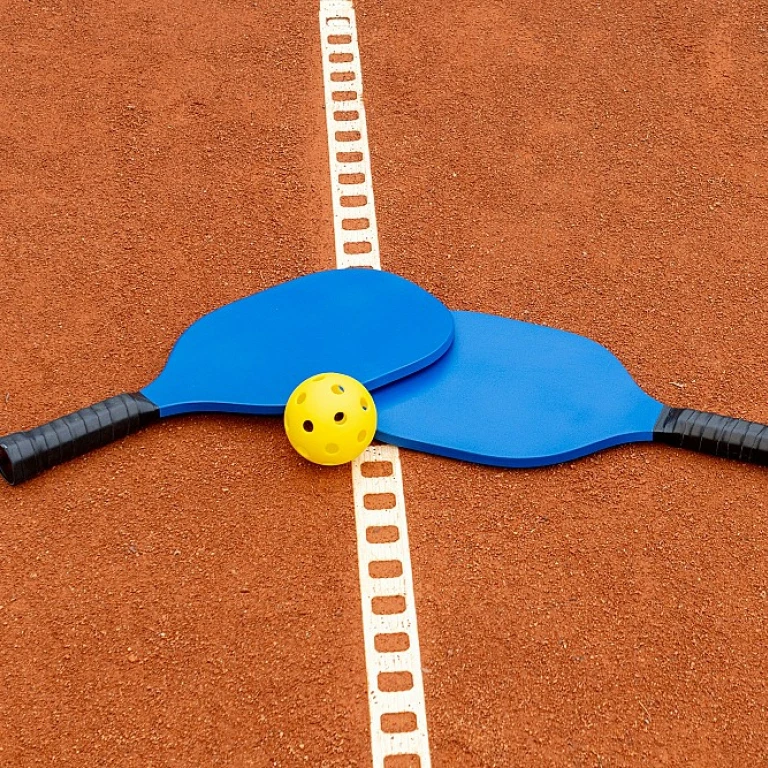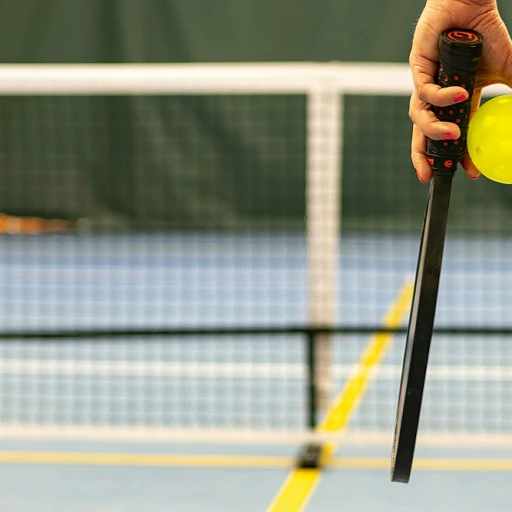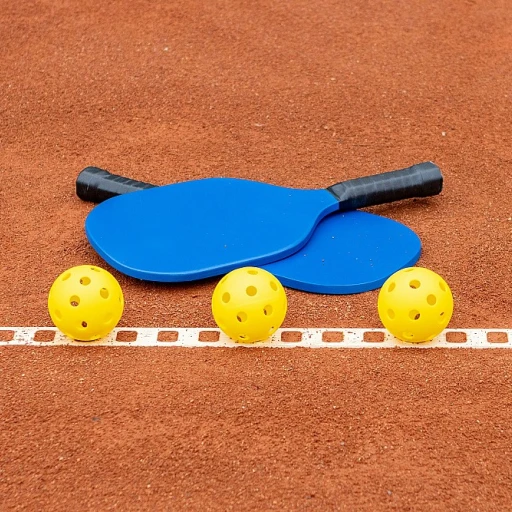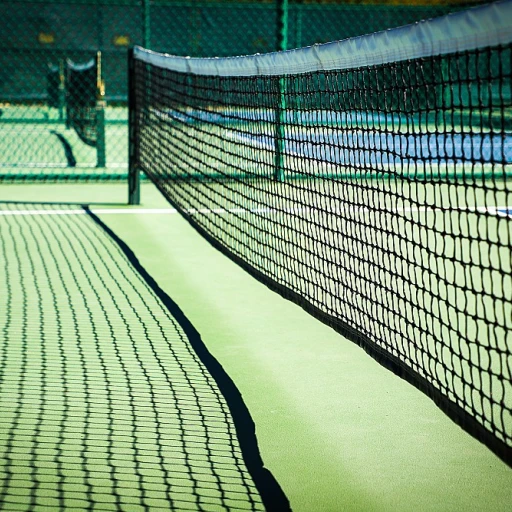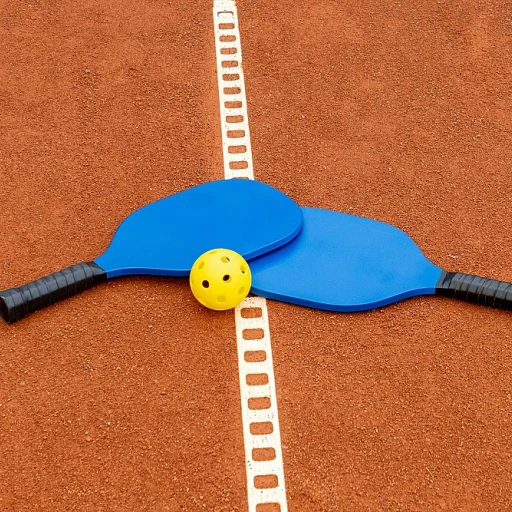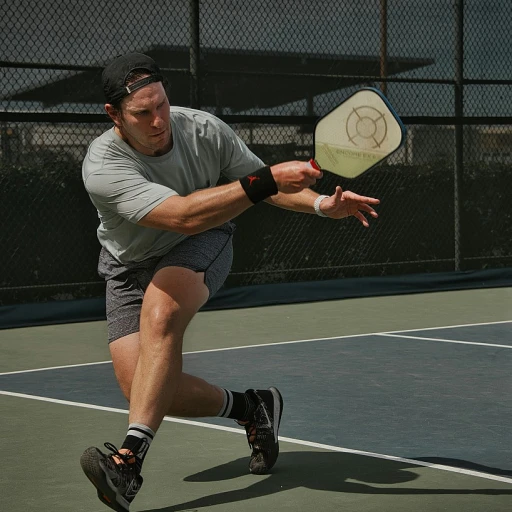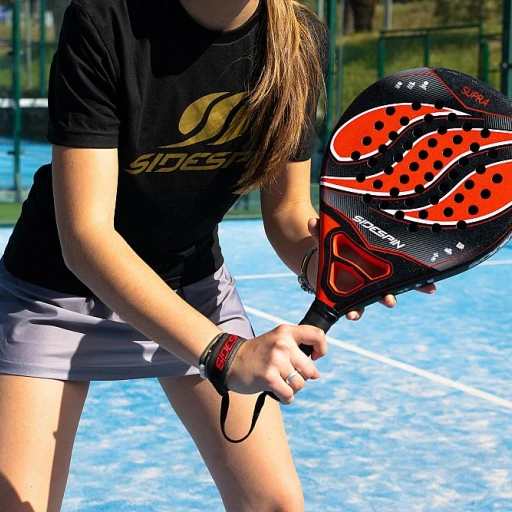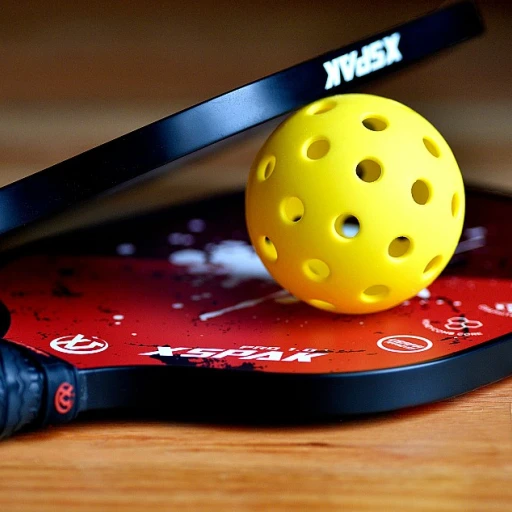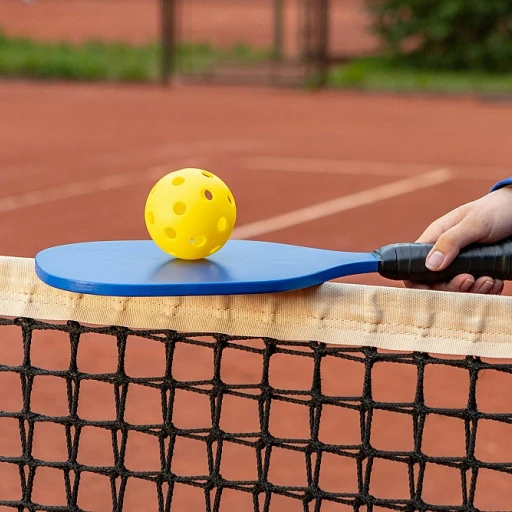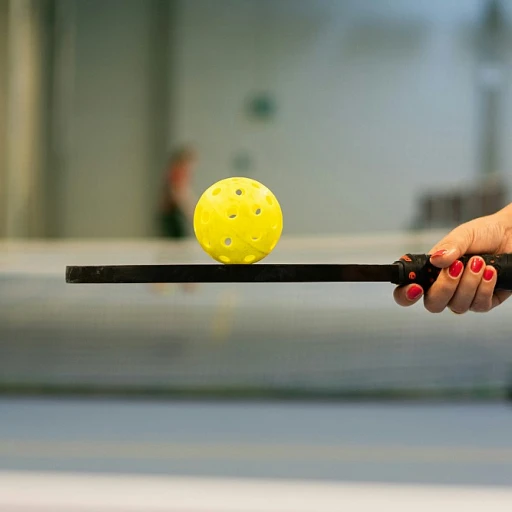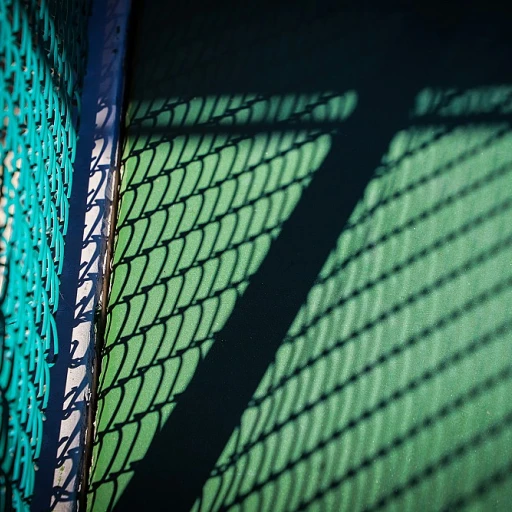
The Role of Paddle Weight in Pickleball
The Significance of a Pickleball Paddle's Weight
Understanding the importance of pickleball paddle weights is crucial for any player looking to excel in the game. The weight of a paddle directly influences your play style, control, and the overall performance on the court. Whether you're a pro or a casual player, choosing the right paddle weight can enhance or hinder your gameplay. In pickleball, paddles come in a variety of weights, typically categorized as lightweight, midweight, and heavyweight. Each weight category offers distinct advantages and drawbacks, making it vital to consider what suits your game the best. Notably, lightweight paddles may provide more maneuverability but could compromise power. On the other hand, heavyweight paddles often deliver increased power, though they might challenge control and stroke precision. Finding the perfect balance and weight can significantly improve your sweet spot accuracy and stroke efficiency. Players often add tape or tungsten materials to adjust paddle weights for personalized preferences. Such modifications might result in better paddle balance, enhancing both control and power. The choice of paddle weight is also influenced by the composition materials like carbon fiber, which affects how the paddle feels and performs. For those interested in the latest innovations, checking out resources on the world of 3D printed pickleball equipment can provide insights into custom weight adjustments through advanced manufacturing techniques. Ultimately, understanding and selecting the right weight for your paddle is a mix of personal preference, gameplay style, and the intrinsic qualities of the paddles you're considering, all factors to bear in mind when making an informed decision.Lightweight Paddles: Pros and Cons
Advantages and Disadvantages of Using Lightweight Options
Pickleball paddles come in various weights, and one popular option for many players is the lightweight paddle. These paddles typically weigh between 6.7 to 7.2 ounces, offering unique advantages and some drawbacks. One of the key benefits of lightweight paddles is the increased speed they provide, allowing for faster reaction times at the net. This can be particularly advantageous in doubles play where quick reflexes are essential. Lightweight paddles also lead to less fatigue when playing for extended periods, reducing the strain on shoulders and arms. This is particularly beneficial for players with a history of arm injuries or those who play frequently. On the flip side, lightweight paddles may not deliver the same power as their heavier counterparts. Players might find it challenging to generate sufficient power for deep baseline shots or aggressive slams. The lighter weight can also make it more difficult to control the ball's direction, impacting accuracy. Additionally, the balance might feel different, which could require some adaptation. For players interested in creative pickleball innovations, exploring unique themes and events related to this sport could enhance your overall experience, whether you're a seasoned pro or new to the game." Overall, choosing a lightweight paddle should consider your playing style and physical capabilities. It's crucial to test various paddle weights during play to find your optimal balance. Regularly reviewing paddle performance can also guide purchasing decisions, ensuring you're equipped for success on the court.Heavyweight Paddles: Pros and Cons
The Advantages and Disadvantages of Heavier Paddles
In the world of pickleball, paddle weight plays a crucial role in how the game feels and performs for each player. When considering a heavier paddle, it's important to weigh the pros and cons to determine if it aligns with your playing style. Advantages of Heavier Paddles:- Power Boost: One of the most significant benefits of heavier paddles is the power they can add to your game. When you use a paddle with more weight, the additional mass can increase the force behind your shots, enhancing the power you can deliver, particularly on drives and smashes.
- Stability and Balance: Heavier paddles often provide increased stability. The weight helps in maintaining paddle balance during swings, allowing players to hit the sweet spot more consistently.
- Control in Windy Conditions: For players who often compete in outdoor environments, a heavier paddle may offer better control in windy conditions, preventing the racket from being easily swayed by gusts.
- Arm Fatigue: While the added weight offers power, it can also lead to arm fatigue over time. Extended periods of play with a heavier paddle can strain the wrist and arm, impacting your endurance and performance in prolonged matches.
- Reduced Maneuverability: The heft of heavier paddles may also reduce maneuverability. Quick reactions and subtle adjustments can be more challenging, particularly for those who rely on speed and finesse in their game.
- Cost Considerations: Some high-quality heavy paddles are more expensive, reflecting the advanced materials and technology used in their construction, such as carbon fiber and tungsten, which might elevate the price.
Finding the Right Paddle Weight for Your Style
Tailoring Your Paddle to Your Personal Game
Choosing the right paddle weight is crucial for enhancing your game and finding the right sweet spot. To determine the ideal paddle weight, you must consider several factors and how they align with your playing style and needs.- Skill Level and Playing Style: Whether you're venturing into the world of pickleball or you're a seasoned pro, your skill level plays a significant role in deciding paddle weight. Beginners might prefer lightweight paddles to focus on control and precision, while experienced players may opt for midweight paddles, striking a balance between power and maneuverability. Heavier paddles, conversely, can benefit players relying on power more than finesse.
- Strength and Comfort: Personal comfort should never be compromised, given the potential strain of swinging heavier paddles. If adding weight is necessary for additional power, consider using lead tape to customize paddle weight incrementally. Pros often add weight to maintain control without sacrificing comfort.
- Paddle Weight and Player Speed: Also consider how the weight of your paddle affects your speed and agility on the court. Lightweight paddles may enhance quick responses, while heavier paddles can offer stability during powerful shots.
- Materials and Construction: The paddle material significantly impacts the weight. Carbon fiber paddles are popular for their strength and versatility. Paddle balance across weight ranges should also be noted, as this affects how the paddle feels during play.
Impact of Paddle Weight on Player Performance
Influence of Paddle Weight on Game Proficiency
When assessing the effects of paddle weight on player performance in pickleball, several factors come into play that can significantly alter how one performs on the court. Firstly, the weight of your paddle can greatly impact power and control. Heavier paddles, for instance, are known for delivering more powerful hits, allowing players to deliver strong smashes and deep shots with less effort. This kind of paddle is often preferred by players looking to add power to their game without necessarily compromising on control. However, it's crucial to note that using a heavier paddle might increase fatigue over extended periods of play and could potentially lead to strain or injury. In contrast, lightweight paddles offer more maneuverability, which can be advantageous for players who rely on quick reflexes and precise placements. These paddles are generally easier to swing and control, providing the ability to excel in fast-paced volley exchanges. While they might offer less innate power than their heavier counterparts, the superior control enables players to strategically place shots right on the sweet spot. For those eyeing a balance between the two, midweight paddles could be an ideal choice. Offering a harmonious blend of power and control, these paddles are often favored by players seeking versatility across various playing styles. When contemplating which paddle weight suits your needs best, consider how it correlates with related equipment like pickleball shoes and your general playing strategy. Investing in model reviews and perhaps trying out paddles at a sale can also facilitate better decision-making. Pay attention to how the paddle weight range aligns with your desired playstyle, incorporating elements such as tungsten or carbon fiber for added durability. Finally, experimenting with adjustments, such as adding weight via lead tape, can customize paddle performance further, allowing you to fine-tune your paddle's balance and control to suit personal preferences and match requirements.Tips for Testing and Choosing the Right Paddle Weight
Testing Different Paddle Weights
When choosing the right pickleball paddle, it's essential to test different paddle weights to find what suits your style. Start by trying out paddles with varying weights, from lightweight to heavyweight, to understand how each affects your control and power. Visit local sports stores or pickleball clubs where you can often demo paddles before making a purchase.
Consider the Balance and Feel
The balance of a paddle can significantly impact your game. A well-balanced paddle will feel comfortable in your hand and allow for better control over the ball. Pay attention to how the paddle feels during play, especially when hitting the sweet spot. Some players prefer a midweight paddle for a balance of power and control.
Utilize Lead Tape for Customization
If you find a paddle that you like but want to adjust the weight, consider using lead tape. Adding weight with lead tape can help you customize the paddle to better suit your playing style. This can be particularly useful if you want to add a bit more power or adjust the balance for improved control.
Read Reviews and Compare Prices
Before making a final decision, read reviews from other players to get insights into the paddle's performance. Reviews can provide valuable information about the paddle's durability, control, and power. Additionally, compare prices across different retailers to ensure you get the best deal, especially during a price sale.
Consider Your Overall Equipment
Remember that your choice of paddle is just one part of your overall equipment. Consider how your pickleball shoes and other gear might affect your performance. A well-rounded setup can enhance your game and help you perform at your best.

